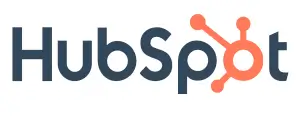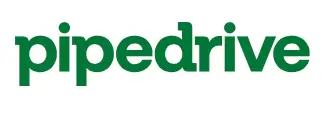![best CRM for startups in [year]. From monday CRM to Nutshell, these tools offer the flexibility, automation, and scalability you need to manage customers and grow your business efficiently.](https://work-management.org/wp-content/uploads/2025/06/crm-for-startups.webp)
Introduction
Launching a startup is an exciting journey, but let’s be honest, it can get messy fast.
You’re chasing leads, juggling emails, trying to remember who you talked to last week, and figuring out which deal is about to close. Sound familiar?
That’s where a CRM for startups becomes a game-changer. It’s not just about managing contacts; it’s about streamlining your sales process, boosting productivity, and helping you stay laser-focused on growth. 🚀
Whether you’re in SaaS, eCommerce, consulting, or services, the right CRM for startups gives you:
- Automation that eliminates manual tasks
- Clarity on your pipeline and team performance
- Better relationships with leads and customers
- Scalable systems that grow with your business
The good news? You don’t need to break the bank. There are CRM tools built specifically for startups, with intuitive interfaces, smart automation, and pricing that fits your budget. 💸
In this guide, we’ll explore the top 5 CRM platforms for startups in 2025, ranked by usability, scalability, and value:
- monday CRM – Best overall for customization and growth
- HubSpot – Best free CRM to start strong
- Pipedrive – Best for sales-driven teams
- Zoho CRM – Best value-packed CRM for lean budgets
- Nutshell – Best for simplicity and team collaboration
Whether you’re just getting started or scaling fast, we’ll help you find the perfect CRM for your startup. Let’s dive in! 👇
What Is a CRM and Why Startups Need One
If you’re still managing your leads through sticky notes or endless spreadsheet tabs, it’s time to level up. 😬
A CRM (Customer Relationship Management) system helps you organize, track, and nurture every interaction you have with prospects and customers. But it’s more than just a digital Rolodex.
📌 What Exactly Does a CRM Do?
At its core, a CRM helps your startup:
- Centralize customer data so everyone’s on the same page
- Track sales activities and pipeline status in real time
- Automate repetitive tasks like follow-ups and reminders
- Analyze performance to make smarter business decisions
Think of it as your startup’s mission control for growth.
Why Is CRM Crucial for Startups?
You might be wondering, “We’re still small, do we really need one?”
The short answer: Yes. And the sooner, the better.
Here’s why:
- Better Organization
Keep your contacts, deals, tasks, and notes in one clean, easy-to-use place. - Time Savings
Automate manual processes like sending welcome emails, scheduling follow-ups, or assigning leads. - Smarter Sales Strategy
Understand what’s working and where you’re losing deals, with built-in analytics and visual dashboards. - Stronger Relationships
Deliver personalized customer experiences with timely communications and well-managed pipelines. - Scalable Growth
As your startup grows, your CRM grows with you. No more reinventing the wheel with every new hire or product launch.
Startup CRM Must-Haves
Choosing your first CRM can feel overwhelming, but it doesn’t have to be. Focus on tools that are:
✅ Easy to use (you shouldn’t need a full-time admin)
✅ Quick to set up (days, not weeks)
✅ Flexible to adapt as your needs change
✅ Affordable with pricing that fits a startup budget
✅ Integration-friendly with tools like Gmail, Slack, and marketing platforms
Up next, we’ll explore the top CRM platforms for startups in 2025, starting with our #1 pick – monday CRM.
Stay tuned!
If you’re looking for a flexible, visual, and scalable CRM, monday CRM should be at the top of your list. 🧡
This platform is built on top of monday.com’s powerful work OS, which means you’re not just getting a CRM, you’re getting an entire business management suite that adapts to your startup’s needs.
Whether you’re managing sales, onboarding, partnerships, or growth campaigns, monday CRM lets you build custom workflows, track every deal, and collaborate across teams – all in one place.
🚀 Key Features
- Visual Sales Pipeline
Drag-and-drop boards with real-time deal tracking. Customize columns for every stage of your funnel. - Automation Without Coding
Automate follow-ups, reminders, and status updates in seconds, no tech team needed. - Team Collaboration
Mention teammates, assign tasks, share files, and update records directly within each deal or contact card. - Custom Dashboards
Get a high-level overview of performance with colorful, widget-based dashboards. - Email Sync & Activity Logging
Connect Gmail or Outlook, track every email, and log calls or meetings automatically. - Integrations Galore
From Slack to Zoom, Shopify to Mailchimp – connect the tools your team already uses.
✅ Pros
- Extremely customizable to match your startup workflow
- Clean, intuitive interface perfect for non-tech teams
- All-in-one platform – CRM, project management, and marketing under one roof
- Scalable for teams of 2 to 200+
- Mobile-friendly and ideal for remote or hybrid teams
❌ Cons
- Requires a bit of initial setup to unlock full power
- Some advanced features are in higher-tier plans
💵 monday CRM Pricing (as of 2025)
| Plan | Monthly Price (per user) | Best For | Key Features |
| Basic | $10 | Small teams starting out | Unlimited boards, lead capturing, custom pipelines |
| Standard | $14 | Growing teams | Automations, email tracking, integrations |
| Pro | $24 | Scaling startups | Advanced analytics, sales forecasting, time tracking |
| Enterprise | Custom | Large/startup scale-ups | Security, permissions, and enterprise-grade automation |
🌟 Why monday CRM Is the Best Pick for Startups
You’re not just buying a CRM, you’re investing in a flexible growth platform that adapts with your team. From pre-revenue to post-Series A, monday CRM scales without adding complexity.
Its drag-and-drop interface, powerful automations, and modular design make it easy to customize and iterate your sales process as your startup evolves.
If you want a CRM that does more than just CRM, this is it.
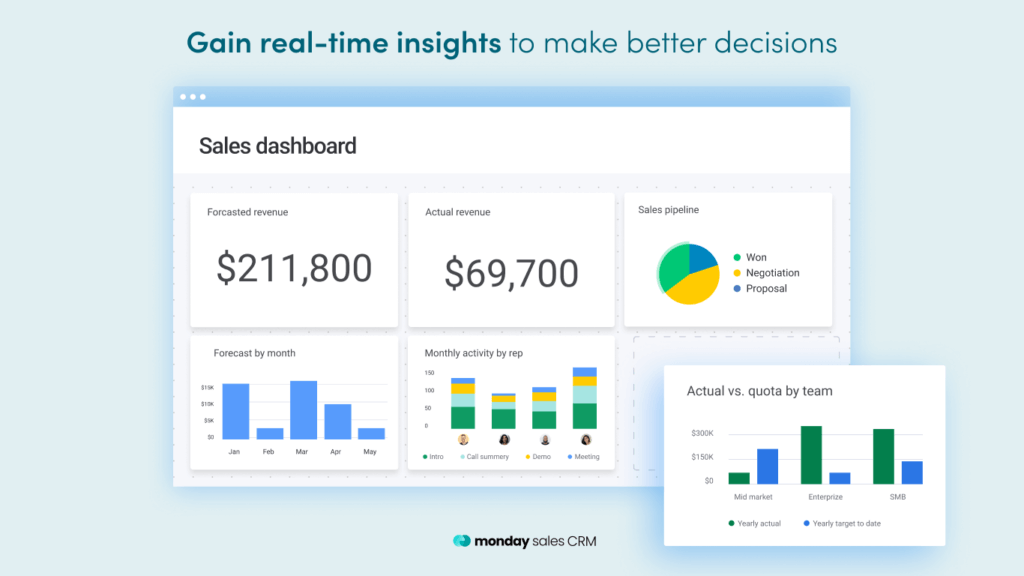
If you’re bootstrapping or just getting your product off the ground, HubSpot CRM is a dream come true. 💸 It offers one of the most robust free CRM tools on the market, and it doesn’t feel like a “lite” version.
HubSpot is well-known in the marketing and sales world, but don’t be fooled, even small startups can benefit from its powerful tools without paying a cent.
🚀 Key Features
- Contact Management
Store unlimited contacts and view every interaction in a clear, timeline-based view. - Email Tracking & Templates
Get real-time notifications when a lead opens your email and reuse high-performing templates. - Pipeline Management
Visualize your deals with drag-and-drop simplicity and customizable deal stages. - Live Chat & Chatbots
Add live chat to your site and automate basic conversations with built-in bots. 🤖 - Reporting Dashboards
Access analytics for marketing, sales, and customer service – all in one clean UI. - App Marketplace
Integrate with 1,000+ apps including Gmail, Outlook, Stripe, Zoom, and Slack.
✅ Pros
- Totally free for core CRM features
- Great for non-technical users
- Built-in marketing, sales, and support tools
- Easy to scale up to paid plans as you grow
- Beautiful, intuitive interface
❌ Cons
- Paid tiers can get pricey as your team and needs grow
- Some automations are only available in the premium tier
💵 HubSpot CRM Pricing (as of 2025)
| Plan | Monthly Price (per user) | Best For | Key Features |
| Basic | $10 | Small teams starting out | Unlimited boards, lead capturing, custom pipelines |
| Standard | $14 | Growing teams | Automations, email tracking, integrations |
| Pro | $24 | Scaling startups | Advanced analytics, sales forecasting, time tracking |
| Enterprise | Custom | Large/startup scale-ups | Security, permissions, and enterprise-grade automation |
🌟 Why Startups Love HubSpot CRM
HubSpot is the ultimate launchpad for growth.
Start with the free plan, get your sales pipeline running, and then add powerful tools as needed – marketing, automation, customer support, and more. 📈
Plus, it’s all under one dashboard, so you’re not stitching together tools or dealing with clunky integrations.
Pro tip: HubSpot also offers a special Startup Program with major discounts if you’re part of an incubator or VC network. 🚀
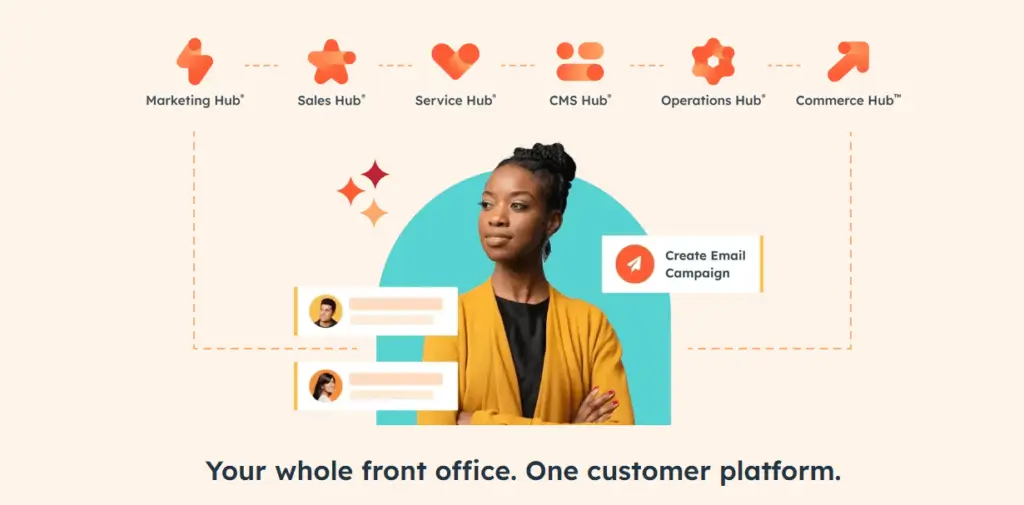
If your startup’s lifeblood is outbound calls, cold emails, and rapid deal cycles, Pipedrive is made for you. 🧊🔥
This CRM was built by salespeople, for salespeople, and it shows. With a razor-sharp focus on pipeline visibility and deal management, Pipedrive helps you stay organized, automate grunt work, and close deals faster.
🚀 Key Features
- Sales Pipeline Visualization
Simple, drag-and-drop interface for moving deals through your custom stages. - Activity-Based Selling
Prioritize actions like calls, emails, or follow-ups to stay on top of every opportunity. - Email Sync & Tracking
See when leads open emails, click links, or reply – directly inside your CRM. - Sales Automation
Automate repetitive tasks like sending reminders or updating deal stages. - AI Sales Assistant
Get performance tips, activity suggestions, and real-time insights to improve conversions. - Custom Fields & Filters
Tailor the CRM exactly to your startup’s workflow and segment leads in seconds.
✅ Pros
- Super intuitive interface – no steep learning curve
- Focused specifically on sales performance
- Affordable and startup-friendly pricing
- Clean mobile app for reps on the move
- Easy integrations with tools like Zoom, Slack, and Trello
❌ Cons
- Lacks built-in marketing tools (but integrates well with others)
- Reporting in lower plans is limited
💵 Pipedrive Pricing (as of 2025)
| Plan | Monthly Price (per user) | Best For | Key Features |
| Essential | $14 | Solo founders & small teams | Pipeline view, activity tracking, deal history |
| Advanced | $29 | Sales teams with growing needs | Email automation, scheduling, workflow builder |
| Professional | $49 | Scaling startups | Lead scoring, custom dashboards, revenue forecasts |
| Enterprise | $99 | Larger sales orgs | Unlimited customization, dedicated support, advanced permissions |
🌟 Why Pipedrive Is Perfect for Sales Teams
If your startup is laser-focused on revenue generation, Pipedrive is a no-brainer. 💡 It cuts out the noise and helps your team focus on what matters most – selling.
With its clear visual pipelines, built-in automation, and affordable plans, you get the sales power of a big CRM without the bloat. Many early-stage founders and SDRs rave about how Pipedrive keeps them moving quickly, without tech headaches.
If HubSpot is your all-in-one growth stack, Pipedrive is your lean, mean sales machine. 🏁
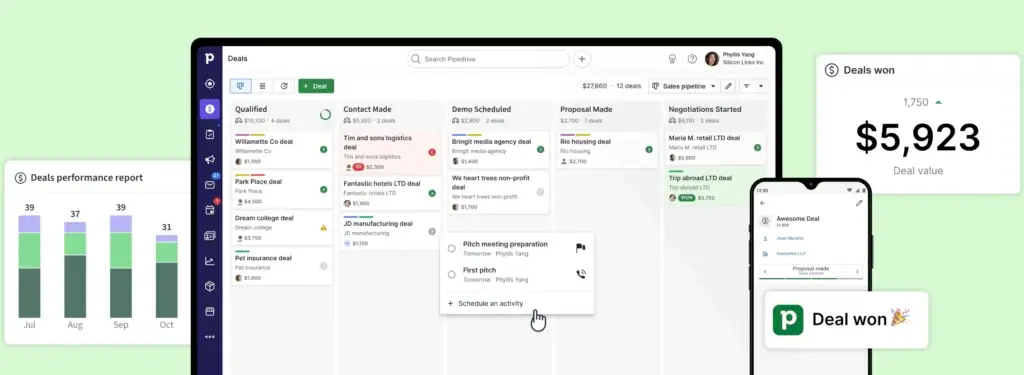
When you’re growing a startup, every dollar matters. That’s why Zoho CRM is such a popular choice; it delivers enterprise-level features at small-business prices. 🏷️
Zoho’s platform is incredibly robust, with deep customization options, AI-powered insights, and integrations across the Zoho ecosystem (plus other tools too). Despite its power, it remains accessible for small teams and solo founders.
🚀 Key Features
- Omnichannel Engagement
Connect with customers via email, social media, phone, chat, and web forms – all in one place. - Workflow Automation
Build custom automation rules for lead scoring, deal movement, task assignments, and more. - Sales Signals
Get real-time alerts when leads engage with your emails, site, or social channels. - Custom Dashboards & Reports
Monitor KPIs, pipelines, and forecasts with easy-to-build visual reports. - Zia AI Assistant
Predict deals likely to close, suggest next steps, and analyze customer behavior. - Marketplace & Integrations
Seamless integration with over 500+ tools, including Mailchimp, Slack, Google Workspace, and more.
✅ Pros
- Offers exceptional value for startups on tight budgets
- Packed with enterprise-grade CRM features
- Easy to customize workflows and UI
- Includes both marketing & sales tools
- Available in multiple languages
❌ Cons
- The interface isn’t as sleek or modern as others
- Setup can feel complex without guidance
- Some features have a steeper learning curve
💵 Zoho CRM Pricing (as of 2025)
| Plan | Monthly Price (per user) | Best For | Key Features |
| Free Edition | $0 | Very small teams (up to 3 users) | Basic CRM tools, leads, tasks, events |
| Standard | $14 | Startups building their sales pipeline | Scoring rules, workflows, custom dashboards |
| Professional | $23 | Growing teams | Sales automation, blueprints, inventory management |
| Enterprise | $40 | Advanced needs & scale-ups | AI (Zia), multi-user portals, advanced customization |
🌟 Why Zoho CRM Is a Budget-Friendly Powerhouse
Zoho CRM proves that you don’t need a huge budget to get big-league functionality. 💪
Whether you’re automating emails, managing leads from different channels, or analyzing your pipeline, Zoho gives you tools normally found in high-end CRMs, but at a fraction of the price.
It’s ideal if your team is a little more tech-savvy and willing to invest time upfront to set things up. Once running, Zoho CRM becomes a super cost-efficient, scalable growth tool. 📈
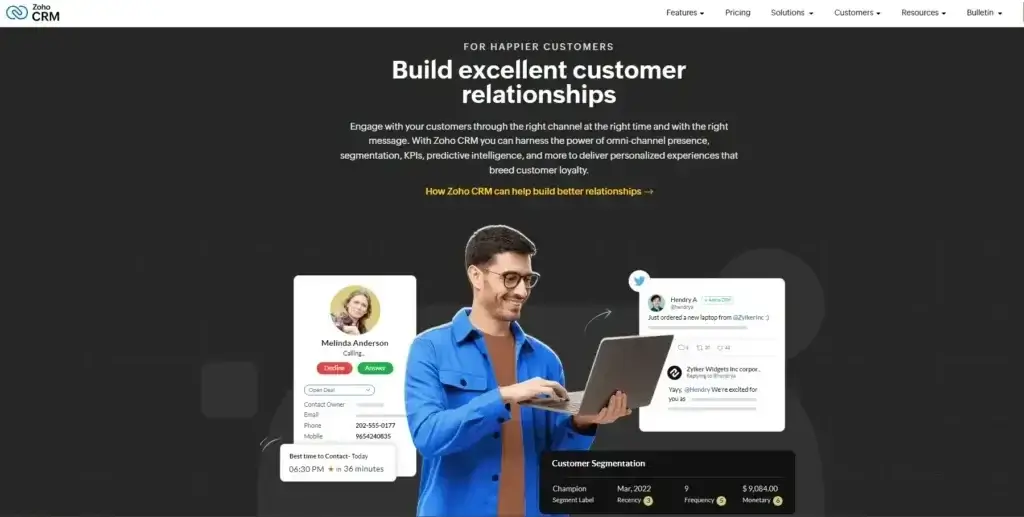
If your startup needs a CRM that’s simple, powerful, and gets out of your way, then Nutshell might be your perfect match.
Designed with small businesses and startups in mind, Nutshell offers a beautifully clean interface, quick setup, and all the features you need to manage leads, close deals, and collaborate with your team, without the clutter.
Think of it as your no-fluff CRM that just works.
🚀 Key Features
- Pipeline Automation
Create visual pipelines and automate repetitive actions like task creation and email follow-ups. - Sales and Marketing in One
Run drip campaigns, capture leads, and track everything from a single dashboard. - Email Sync & Templates
Connect Gmail or Office 365, send bulk emails, and track engagement. - Click-to-Call & Recording
Make calls directly from the CRM with automatic logging and recording. - Team Collaboration Tools
Assign tasks, share contact info, and add notes in real-time. - Custom Reporting
Track team performance, sales activities, and deal velocity with simple visual reports.
✅ Pros
- User-friendly interface with quick onboarding
- Combining sales and marketing in one clean tool
- Excellent customer support (real humans!)
- Affordable pricing with good feature depth
- Great for remote or hybrid teams
❌ Cons
- Lacks advanced integrations compared to bigger platforms
- It may not be ideal for complex enterprise workflows
- Fewer third-party app connections
💵 Nutshell CRM Pricing (as of 2025)
| Plan | Monthly Price (per user) | Best For | Key Features |
| Foundation | $16 | Startups needing a simple CRM | Pipeline view, contact management, basic reporting |
| Pro | $42 | Teams needing automation + marketing | Email sequences, sales automation, team collaboration |
| Marketing Add-on | $5–$25 (based on contacts) | Startups with email marketing needs | Drip campaigns, lead forms, landing pages |
🌟 Why Nutshell Is Ideal for Simple, Collaborative Startups
Not every startup wants a complex CRM that takes weeks to implement. 🕒
Nutshell keeps things simple but powerful. It’s great for startups that want to close deals faster, track communications, and stay organized, all without needing to train a full team or hire a CRM admin.
If you’re a team that values speed, usability, and collaboration, Nutshell offers an approachable, all-in-one platform to help you grow confidently. 🌱

How to Choose the Right CRM for Your Startup
You’ve just seen five powerful CRMs that could help your startup thrive. But how do you know which one is right for you?
Every startup is different in size, goals, team structure, and resources. Here’s a simple, no-fluff framework to guide your decision.
🔍 1. Define Your Goals First
Start by asking:
-
Are you trying to increase sales conversions?
-
Do you need better lead tracking and follow-ups?
-
Do you want to automate your email outreach?
-
Are you aiming to centralize all customer communication?
When you’re clear about the problem you want to solve, it becomes easier to pick the right solution.
👥 2. Consider Your Team’s Size & Skill Level
Choose a CRM that fits your team structure:
-
Small team or solo founder?
Go for a lightweight, easy-to-set-up CRM like Nutshell or the free version of HubSpot. -
Tech-savvy team?
Platforms like Zoho CRM offer deeper customization for teams that want to tinker. -
Growing team with plans to scale?
monday CRM is built to grow with you, from 3 to 30 to 300 users.
💸 3. Set a Realistic Budget
Startups need to be smart with their cash flow. Here’s how to think about CRM pricing:
-
Free tools like HubSpot CRM (Free) are great for MVP-stage startups.
-
Budget CRMs like Zoho offer premium features without high costs.
-
Consider long-term value: monday CRM might be more expensive than Zoho upfront, but it reduces the need for separate project management or automation tools.
🔌 4. Think About Your Tech Stack
Your CRM should integrate smoothly with the tools you already use:
-
Do you use Gmail or Outlook?
-
Need Slack notifications or Zoom integrations?
-
Planning to send newsletters via Brevo or Mailchimp?
CRMs like monday CRM and HubSpot shine here, offering 1000+ integrations to reduce context-switching. 🔗
📈 5. Make Sure It Scales With You
Choose a platform that grows as your startup evolves:
-
Can it handle more users, more data, and more automation later on?
-
Does it offer enterprise features without needing a full migration?
Pipedrive and monday CRM are fantastic for startups that want to build now and scale later, without switching tools every 6 months. 🪜
🧪 6. Always Take a Test Drive
Before committing, use free trials, demos, or starter plans to:
- Explore the UI
- Test how easy it is to import data
- Try out core features like automation or pipeline tracking
- Get feedback from your team!
Pro tip: Set up a mini test project or lead flow and invite your sales or marketing team to use the CRM for a week. If it saves time and makes things clearer, you’ve found your match! 💘
Implementation Tips for Startups
Choosing the right CRM is just the beginning. To actually get results, you need to implement it the right way.
Here’s a step-by-step guide to make sure your startup sets up and runs its CRM like a pro from day one.
1. Start With a Clear CRM Setup Plan
Before importing any data, take a moment to:
- Identify your sales stages (e.g., Lead → Contacted → Demo → Closed)
- Decide what custom fields you’ll need (e.g., industry, budget, lead source)
- Set up automations for repetitive tasks like follow-ups or lead assignments
💡 Pro tip: Platforms like monday CRM and Pipedrive make this easy with templates and drag-and-drop boards.
2. Train Your Team (Even If It’s Just 2 of You)
No matter how user-friendly the CRM is, your team needs to understand how to use it properly.
- Set up a 30–60 minute onboarding session
- Show how to add contacts, move deals, and track activities
- Share a simple “how-to” doc or Loom video for reference
🧡 The easier it is for your team to use it, the more value you’ll get from it!
3. Integrate With Your Existing Tools
Most CRMs play nicely with popular tools like:
- Gmail/Outlook
- Slack
- Zoom
- Google Sheets
- Marketing platforms like Brevo or Mailchimp
Don’t skip this step, integrations keep your tools in sync and reduce double work.
4. Automate Repetitive Workflows
Your time is precious. Use your CRM to:
- Send automatic welcome emails
- Assign tasks after form submissions
- Remind reps when deals go stale
- Update the deal status based on actions
CRMs like HubSpot and monday CRM offer powerful no-code automation. Just set it and forget it.
5. Monitor Usage and Optimize
Once your CRM is live:
- Track adoption – is everyone actually using it?
- Review deal flow and reports weekly
- Look for bottlenecks or drop-offs
- Adjust fields, stages, and automations as needed
Over time, your CRM becomes a data-driven engine for smarter decisions.
6. Keep It Simple at First
One of the biggest mistakes startups make is trying to use every feature at once.
Instead:
- Start with just 1–2 pipelines
- Focus on contacts, deals, and one automation
- Add complexity only as your team grows
A CRM is like a muscle; build it slowly, and it will serve you for years.
Conclusion
As a startup, your time, energy, and resources are precious. Choosing the right CRM isn’t just about organizing contacts; it’s about setting the foundation for long-term growth.
Each of the tools we’ve covered brings something unique to the table:
monday CRM – Best overall for customizable, scalable workflows
HubSpot CRM – The Most powerful free CRM to get started
Pipedrive – Ideal for sales-driven teams that need pipeline clarity
Zoho CRM – Feature-packed yet budget-friendly
Nutshell – Simple and effective for fast-moving teams
Here’s the bottom line: Don’t wait until things get messy to adopt a CRM. Start now, build habits early, and empower your team with tools that scale alongside you. 🧩
Whether you’re just launching or preparing for your next funding round, the right CRM will help you:
- Close more deals
- Build better customer relationships
- Save hours every week through automation
- Make smarter decisions based on real data
✅ Ready to Get Started?
Explore free trials, test the features, and choose the CRM that fits your startup like a glove. You don’t need enterprise software to operate like an enterprise; you just need the right tools and the right mindset.
FAQ
1. What is the best CRM for startups overall?
monday CRM is our top pick for startups. It offers customizable pipelines, powerful automations, and seamless team collaboration – all in an easy-to-use interface. It’s built to scale with your business.
2. Is there a free CRM good enough for serious use?
Yes, HubSpot CRM is an excellent free option. It includes contact management, deal tracking, email tools, and integrations, making it perfect for early-stage startups that want to keep costs low without compromising on functionality.
3. Which CRM is best for closing more deals?
Pipedrive is made for sales-driven startups. Its visual pipelines, activity-based reminders, and sales automations help teams focus on high-converting actions and improve their closing rates.
4. Which CRM offers the best value for money?
Zoho CRM delivers enterprise-level features at very affordable prices. It’s ideal for startups that need deep functionality like AI insights, marketing tools, and workflow automation on a budget.
5. Which CRM is easiest to use and set up?
Nutshell is incredibly simple to set up and use. It’s perfect for teams who want a streamlined CRM without a steep learning curve or unnecessary complexity.
6. Do startups really need a CRM from the beginning?
Absolutely. Even small teams benefit from better organization, automated follow-ups, and centralized customer data. Starting with a CRM early helps avoid chaos as you grow.
7. What features should startups look for in a CRM?
Look for easy setup, visual pipelines, automation tools, team collaboration, and integrations with email, calendars, and marketing platforms. Scalability is key too.
8. Can I customize the CRM to fit my process?
Yes, tools like monday CRM and Zoho CRM allow full customization of pipelines, fields, dashboards, and workflows so you can match your unique sales cycle.
9. What if my team doesn’t use the CRM?
Adoption is crucial. Start with simple workflows, provide quick training, and choose a CRM with an intuitive UI. The easier it is to use, the more likely your team will engage.
10. Are CRMs secure enough for sensitive customer data?
Reputable CRMs like monday, HubSpot, and Zoho follow strict data protection standards, including GDPR compliance and encryption. Always review their security policies before onboarding.


